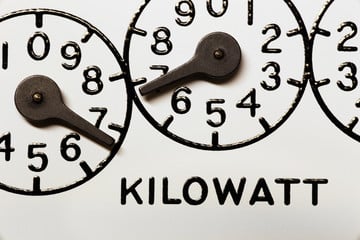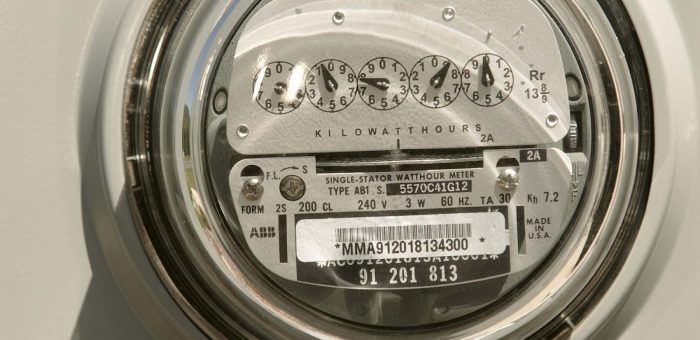The deregulation of electricity in Texas opens up a huge opportunity for residents to choose any retail electricity provider (REP) they want. However, most just stick with whoever they have now.
What’s wrong with that?
Well, it’s like going to a candy store and only getting candy corn.
Whatever your opinion is of candy corn, you probably wouldn’t say it should be the only candy there is. There are over 130 flavors of providers to choose from, so why would you stick with one when you aren’t even sure if it’s your favorite?
Don’t let analysis paralysis keep you from the best electricity plan.
Click on a section to skip directly to it:
What is Electricity Deregulation?
Deregulation, commonly referred to as retail electric choice, is not a new idea.
Originally, there was no regulation of electricity. The market was essentially deregulated – we just didn’t use the term.
Without regulation, the lack of organization and monopolization by large utility companies led to a bit of chaos:
- Price-gouging
- Duplicate distribution systems
- Large blackouts
- Other complications
In 1935, to protect consumers and the level of service provided, both state and federal governments stepped in and the electricity market was regulated.
Starting in the 1970s the federal government slowly introduced changes to move back to a free electricity market.
Now, with proper oversight, states can choose to implement retail electric choice programs – aka, deregulation.
This is a very high-level summation. A LOT of elements contributed to the current affairs of federal and state electricity regulations.
Deregulation of electricity is essentially the unbundling of large, investor-owned utility companies who, historically, control all three aspects of the electricity market:
- Generation
- Transmission
- Distribution
Deregulation introduces competition into the marketplace, typically in the distribution phase. Rather than being beholden to ONE utility company, consumers can choose the energy provider they want to do business with.
This allows Retail Electricity Providers (REPs) to offer various rates, plan types, and different levels of flexibility to consumers.
Where is Electricity Deregulated in the United States?
While some states in the U.S. are still fully regulated, others operate under deregulated or partially-deregulated energy markets (electricity, natural gas, or a combination of the two).
Here is a map of the U.S. that provides an overview of which states have a deregulated electricity market.
If you view this map, you’ll see that Texas is one of several states that has a “functioning competitive electrical utility market.”
Let’s take a look at Texas’ deregulated electricity map.
Texas Deregulation Map: Overview
There are six Transmission and Delivery Utility (TDU) companies servicing the areas of Texas that have a retail electric choice (the deregulated markets).
In the map below, you’ll see the six TDUs and their coverage areas.
The markets in white do not participate in retail electric choice. We’ll discuss why some areas are exempt from deregulation in a later section of this article.
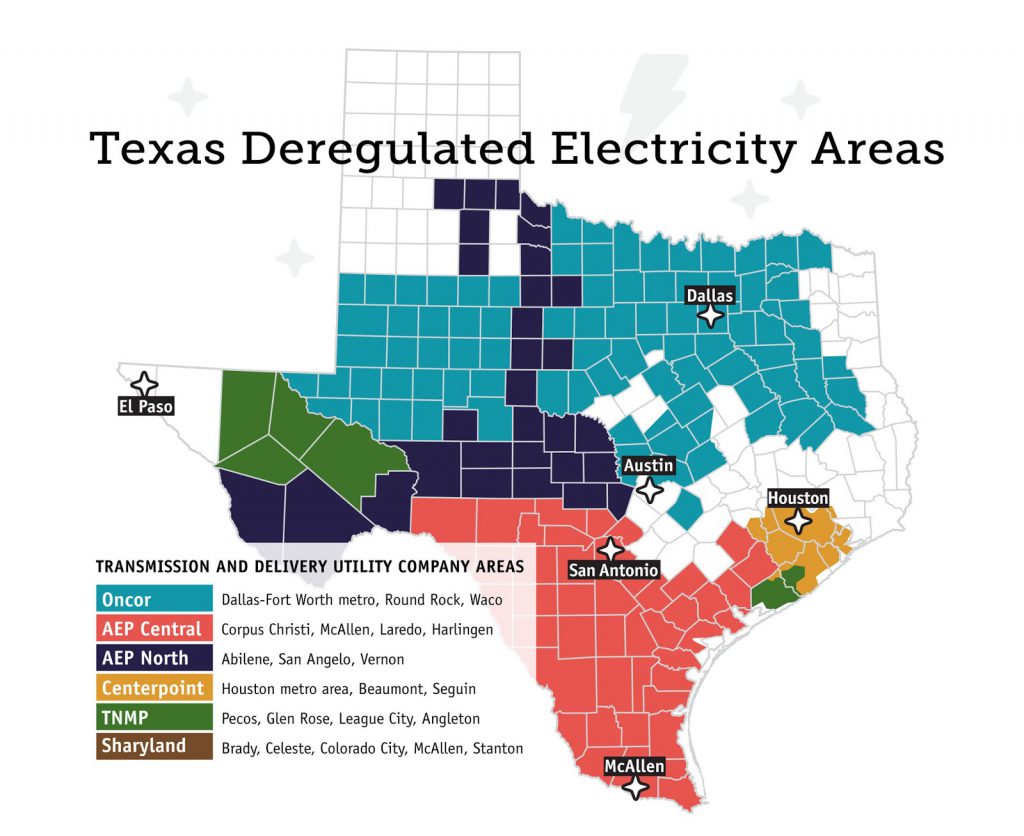
Texas Deregulation Map: Detailed Deregulated Areas
Here is a more detailed view of the deregulated markets with several more cities labeled.
Three of the largest cities in Texas are deregulated:
- Houston
- Dallas
- Fort Worth
For a complete list of electricity-deregulated cities and towns in Texas, please see below.
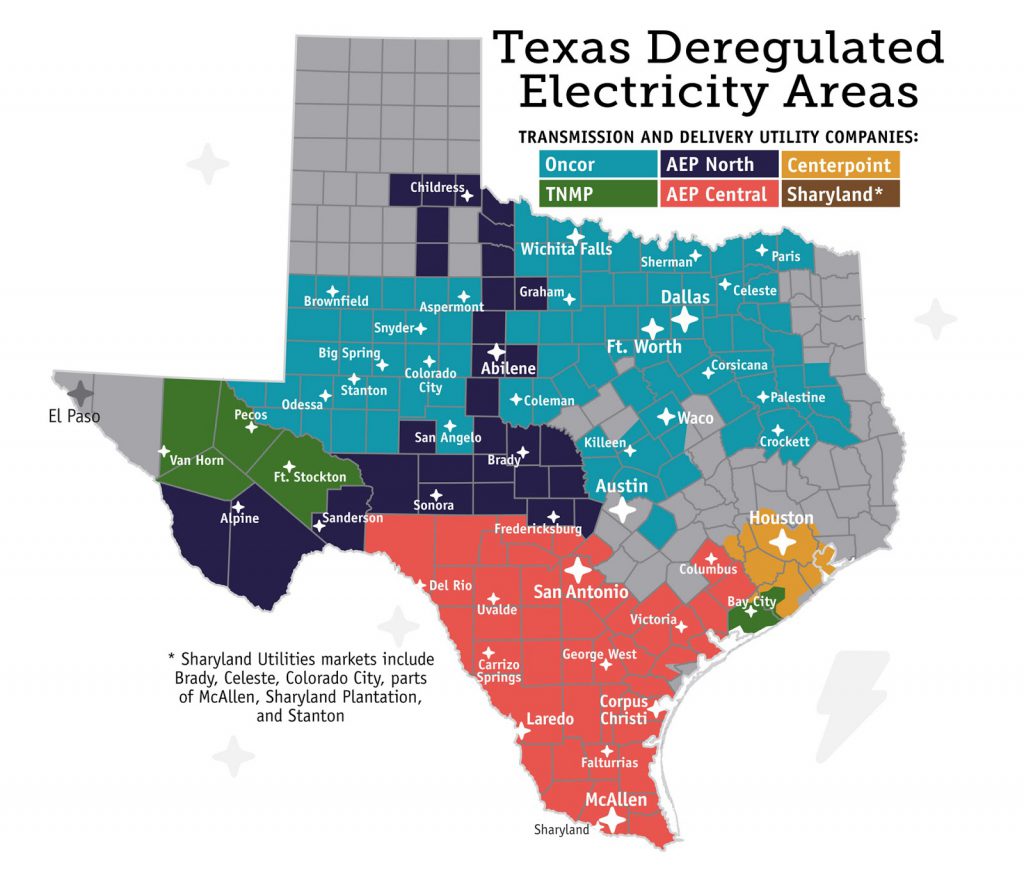
[ctasecond]
Texas Deregulation Map: Detailed Regulated Areas
This map highlights the areas of Texas that do not participate in retail electric choice. We’ll dive into why some areas are exempt from deregulation in a bit.
As you can see, the regulated areas of Texas account for only about 25% of the land area of Texas. The remaining 75% of the state is regulated.
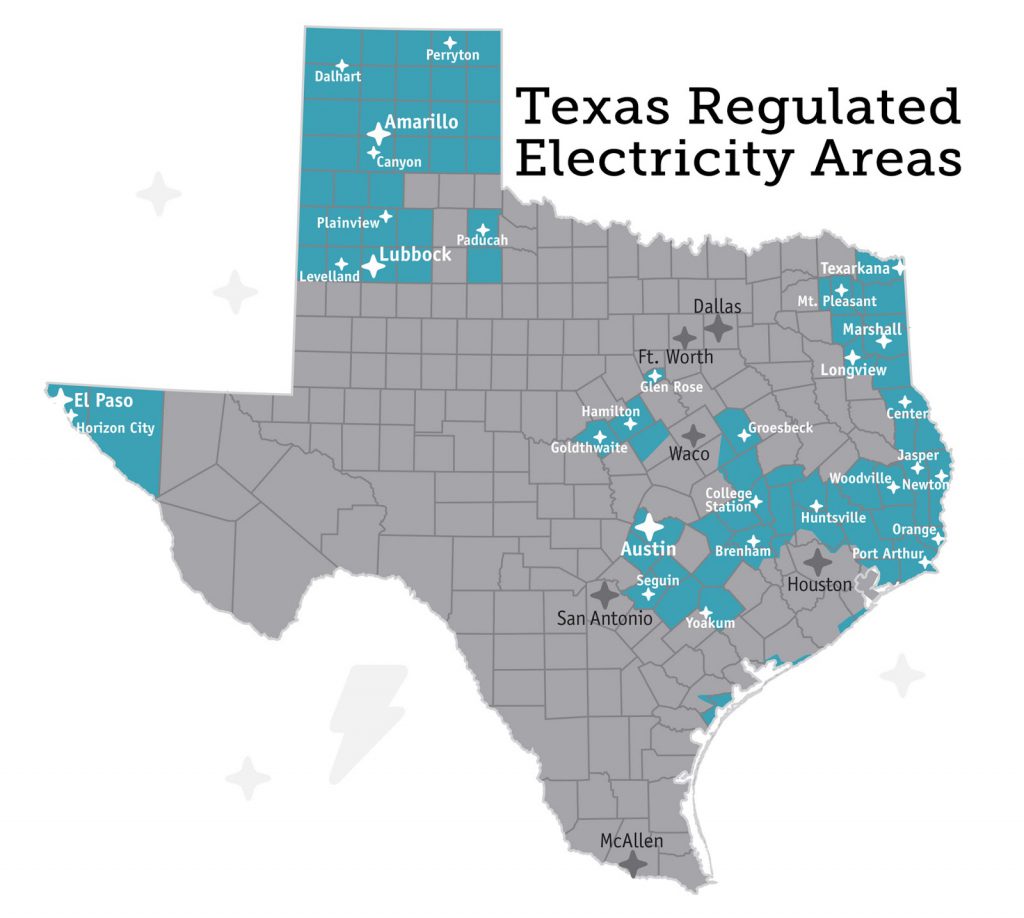
The Electricity Market: A History of Texas Deregulation
The history behind Texas’ switch to a competitive retail electricity market is long. It’s full of politics, corporate bureaucracy, varied claims of what is best for the consumer, etc.
Those pushing for deregulation of the retail electricity market believed that large investor-owned utilities had a monopoly on the market.
There was no competition in the pricing of rates per kWh. The utility companies set the price, and the consumer paid it.
Supporters of deregulation argued that consumers would pay a lower price for electricity if individual providers were allowed to purchase electricity at a wholesale price and then sell it to consumers for a profit.
Ultimately, the argument was: that multiple providers competing for the same customers would drive prices down.
Here is a brief timeline of events leading to Texas’ current deregulated market:
- 1995: Legislation deregulating the wholesale power market in Texas passes
- 1997: Bill to deregulate the retail market in Texas dies in committee
- 1999: The PUC of Texas acknowledges that rates charged by utilities are too high
- 1999: Senate Bill 7 is signed into law – effectively deregulating the retail electric market
- 2002: The retail electric market opens
Does Texas Deregulation Look Different Than Other Deregulated States?
Although several states have active retail choice programs, no other state has adopted as large or widespread a program like Texas.
Unlike other deregulated states, “electrical retail choice is mandated in Texas.” Because of this, over 87% of residential customer sales are provided by competitive suppliers.
Compare this number to the three states with the next highest levels of participation in a retail choice program:
- Ohio: 46%
- Illinois: 35%
- Massachusetts: 34%
If the retail choice in Texas is mandated, why don’t competitive suppliers account for 100% of residential electricity sales?
This is where the market can get a bit confusing in Texas.
There are two groups of consumers who are excluded from mandatory deregulation:
- Customers in investor-owned utility service areas outside the ERCOT Regional Transmission Organization
- Customers in areas serviced by municipal or cooperative utilities (even those within ERCOT) who have chosen to opt-out of the retail choice program a. Participation in the retail choice program is not mandated for non-investor-owned utilities (like municipal and cooperative utilities)
So, if some Texans don’t have the option to choose their REP, who bills them for their monthly electricity usage?
How do Areas Exempt from Texas Deregulation Manage Electrical Distribution?
Consumers served by investor-owned utilities outside of ERCOT management are not eligible to participate in retail electric choice.
Additionally, municipal and cooperative utility companies (not investor-owned) can opt out of the retail electric choice program in Texas.
Consumers in these areas don’t have the freedom to choose their electric provider. So, how does the market work in these areas?
Let’s say you are moving from Houston to El Paso.
In Houston, you had several options for purchasing your electricity. You could shop around for rates and plan types that best fit your needs.
All that changes in El Paso where the only option for electricity service is El Paso Electric.
El Paso Electric is a public-owned utility company (therefore exempt from deregulation). It is the sole electricity provider in the area and has been operating since 1901.
Because there is no electric choice available in El Paso, all residents must purchase their electricity directly from El Paso Electric.
El Paso manages all generation, transmission, and distribution for the area it serves and rates in El Paso are slightly higher than the average rate for the state of Texas.
[ctafirst]
Texas Deregulation: How Do you Choose the Best Retail Electricity Provider and Plan?
Having the freedom to choose also creates the responsibility of choosing a plan that will serve you best without costing an arm and a leg.
In some deregulated areas of Texas, you might have dozens of retail electric providers to choose from.
Additionally, each of these REPs might have dozens of plans and rate options to choose from.
Dozens of providers, plans. and rate options. A myriad of available combinations. You might soon be looking at hundreds of choices.
So how do you compare and ultimately choose the right plan?
Use All of Your Free Time Researching Available Each Provider
Researching available providers is your first step. To ensure you don’t miss out on a plan that is cost-effective and meets your needs, you have to be meticulous when completing this step.
You’ll need to harness all of your available patience and commit to researching EVERY provider.
How you do this is up to you. The two main options are:
- Online research
- Phone calls
Whichever path you choose, this step might take you days or weeks. For every REP, you’ll need to inquire about:
- Current rates
- Available plan types
- Deposit requirements
- Contract terms and early termination fees
- Additional fees
- Incentives or promotions offered
What do you do with all this information as you find it?
Compile a Thorough List of Electricity Plans Offered by The REPs in Your Area
As you research REPs, you’ll want to create some sort of spreadsheet to compare all the information you gather.
Have you taken an Excel class? No? Think you’ll be able to just wing it? Well, you probably can. Putting a spreadsheet together to collect the information really won’t be too difficult.
It’s the next few steps that might get you.
Establish Your Unique Electricity Needs
Every Texas household is unique. How and when do you use electricity?
Some major factors that can affect your answer to this question are:
- Size of your home
- Age of your home
- Style of your home
- Time spent at home
- Number of occupants in your home
- Appliance use in your home
- And much more
You need to look at the specific ways you use electricity to choose the type of plan that will meet your needs.
The type of plan you choose will affect:
- Rate per kWh
- Deposit
- Contract terms
- Additional fees
How will you compare your hundreds of options to your unique needs?
Develop a Way to Objectively Compare All of the Plans Against Your Unique Needs
This is where the process can get difficult and overwhelming.
It is nearly impossible to objectively compare your options manually.
Ideally, you would develop software or an algorithm that looks at all aspects of your historical usage. Then, implement that tool to compare all the information you compiled while researching your available options.
Do you have the math or tech skills to do this?
Choose a Plan, Enroll, and Continually Monitor the Market
Once you have done all your comparisons, choose a REP and enroll in the plan that suits you best.
But your work doesn’t end here.
Can you be sure the plan you chose will still work for you in three months? How about 8 months? A year?
You’ll need to continually update your spreadsheet and constantly monitor the market. Rates change. New plans are created. New promotions are offered.
There could always be another option out there that might save you money.
Save Time With Power Wizard
If that entire process makes you want to pack up and move to a city that doesn’t have a retail electric choice, we understand.
It’s time-consuming, confusing, and downright frustrating, and exhausting.
Power Wizard has a better solution. We are an electricity comparison site, also known as a digital marketplace. We’ve done half of the research for you by compiling, in one place, the companies and the electricity plans they offer.
You can simply make a few selections based on your electricity needs and other preferences, and voilà… you are ready sign up for a plan.
Complete List of Deregulated Cities in Texas
Below, you will find a complete list of cities and towns in Texas that are part of the retail electric choice program in Texas.
Select cities are clickable. You can learn more about REPs, rates, and plans available in these locations.
Keep in mind, that some locations in Texas are only partially-deregulated. Zipcodes are very important when researching deregulated areas of Texas.
- Abilene
- Addison
- Alamo
- Albany
- Aledo
- Alice
- Allen
- Alpine
- Alvarado
- Alvin
- Alvord
- Andrews
- Angleton
- Anson
- Aransas Pass
- Archer City
- Argyle
- Arlington
- Arroyo City
- Aspermont
- Athens
- Atlanta
- Aubrey
- Austwell
- Azle
- Bacliff
- Baird
- Balch Springs
- Ballinger
- Balmorhea
- Barksdale
- Bay City
- Baytown
- Bedford
- Beeville
- Bellaire
- Bellmead
- Belton
- Benbrook
- Big Lake
- Big Spring
- Bishop
- Blooming Grove
- Bonham
- Booker
- Brackettville
- Brazoria
- Breckenridge
- Bronte
- Brookshire
- Brownwood
- Buffalo
- Burkburnett
- Burleson
- Cameron
- Canton
- Carrizo Springs
- Carrollton
- Cedar Hill
- Cedar Park
- Centerville
- Channelview
- Childress
- Christoval
- Cisco
- Clarendon
- Clarksville
- Cleburne
- Clifton
- Clute
- Clyde
- Collinsville
- Colorado City
- Columbus
- Comanche
- Commerce
- Comstock
- Cooper
- Coppell
- Copperas Cove
- Corpus Christi
- Corsicana
- Cotulla
- Crane
- Crockett
- Crosby
- Cross Plains
- Crossroads
- Crowell
- Crystal City
- Cypress
- Dallas
- De Leon
- De Soto
- Decatur
- Deer Park
- Del Rio
- Denison
- Devine
- Diboll
- Dickens
- Dickinson
- Dilley
- Donna
- Dublin
- Dumas
- Duncanville
- Eagle Lake
- Eagle Pass
- Early
- Eastland
- Eden
- Edgewood
- Edinburg
- Edna
- Edom
- Egypt
- El Campo
- Eldorado
- Electra
- Elgin
- Ennis
- Escobares
- Etoile
- Euless
- Eustace
- Falcon Heights
- Falfurrias
- Farmers Branch
- Flint
- Flo
- Forest Hill
- Forney
- Fort Davis
- Fort Stockton
- Fort Worth
- Freeport
- Freer
- Frisco
- Fulton
- Gainesville
- Galena Park
- Galveston
- Gatesville
- George West
- Goliad
- Graford
- Graham
- Granbury
- Grand Prairie
- Grandview
- Grapevine
- Gun Barrel City
- Hallettsville
- Haltom City
- Hamilton
- Hamlin
- Harker Heights
- Harlingen
- Haskell
- Hebbronville
- Henrietta
- Hidalgo
- Hillsboro
- Hitchcock
- Houston
- Hubbard
- Hudson
- Humble
- Huntington
- Hurst
- Hutchins
- Ingleside
- Iraan
- Irving
- Italy
- Jacksboro
- Jersey Village
- Jewett
- Johnson City
- Jourdanton
- Junction
- Karnes City
- Katy
- Kaufman
- Keene
- Keller
- Kemah
- Kenedy
- Kermit
- Killeen
- Kingsville
- Knox City
- La Feria
- La Marque
- La Porte
- Lacy Lakeview
- Ladonia
- Laguna Park
- Lajitas
- Lake Jackson
- Lake Whitney
- Lake Worth
- Lamesa
- Lancaster
- Laredo
- League City
- Leakey
- Leona
- Lewisville
- Lindale
- Liverpool
- Log Cabin
- Los Fresnos
- Lufkin
- Lytle
- Mabank
- Magnolia
- Malakoff
- Malone
- Manor
- Mansfield
- Marfa
- Mathis
- Mc Allen
- Mc Gregor
- Mc Kinney
- Memphis
- Menard
- Mercedes
- Merkel
- Mesquite
- Midland
- Midlothian
- Milano
- Milford
- Mineral Wells
- Mission
- Monahans
- Muenster
- Munday
- Nacogdoches
- Nassau Bay
- Neches
- Nocona
- North Richland Hills
- Northlake
- Odem
- Odessa
- Olney
- Orange Grove
- Ozona
- Paducah
- Paint Rock
- Palacios
- Palestine
- Palmer
- Palmview
- Paris
- Pasadena
- Pearland
- Pearsall
- Pecos
- Penitas
- Perryton
- Pharr
- Pilot Point
- Plano
- Pleasanton
- Port Aransas
- Port Isabel
- Port Lavaca
- Port Mansfield
- Port O Connor
- Portland
- Pottsboro
- Praire View
- Premont
- Presidio
- Quanah
- Quinlan
- Quintana
- Rachel
- Rainbow
- Rancho Viejo
- Ranger
- Rankin
- Raymondville
- Red Oak
- Refugio
- Reklaw
- Richardson
- Richland
- Richland Hills
- Richmond
- Rio Grande City
- Rio Hondo
- Riviera
- Riviera Beach
- Roanoke
- Robert Lee
- Rockdale
- Rockport
- Rocksprings
- Rockwall
- Roma
- Rosenberg
- Rotan
- Round Rock
- Round Top
- Rowlett
- Royse City
- Ruidosa
- Rule
- Sabinal
- Saginaw
- Saint Jo
- Salado
- San Angelo
- San Benito
- San Juan
- San Leon
- Sandia
- Santa Anna
- Sargent
- Seabrook
- Seadrift
- Seagoville
- Sealy
- Seguin
- Shamrock
- Sheffield
- Sherman
- Sinton
- Snyder
- Sonora
- South Houston
- South Padre Island
- Spearman
- Spring
- Springtown
- Spur
- Stafford
- Stamford
- Stephenville
- Sugar Land
- Sulphur Springs
- Surfside Beach
- Sweetwater
- Synder
- Taft
- Taylor
- Temple
- Terlingua
- Terrell
- Texas City
- The Colony
- Three Rivers
- Throckmorton
- Tivoli
- Tomball
- Tuleta
- Tyler
- Uvalde
- Van
- Van Alstyne
- Vernon
- Victoria
- Waco
- Waxahachie
- Webster
- Wellington
- Weslaco
- West Columbia
- West Tawakoni
- Westlake
- Wharton
- White Settlement
- Whitewright
- Whitney
- Wichita Falls
- Wills Point
- Wimberley
- Winters
- Wolfe City
- Woodway
- Yantis
- Yorktown
- Zapata
- Zavalla
[ctafirst]
More From the Power Wizard Blog
-
Green Energy vs. Fossil Fuels: A Cost Comparison
As global efforts to minimize fossil fuel emissions continue, green energy alternatives offer a potential long-term solution to the problem. Today, sustainable resources like wind and solar energy are becoming more prevalent as countries worldwide strive to meet net-zero objectives by 2050. But how does the cost of green energy compare to fossil fuel costs, and […]
View Article -
Common misconceptions about Texas electricity deregulation
Texas has a unique power grid that’s completely deregulated. Since it’s the only state with isolated electricity deregulation, many people don’t fully understand how it works, leading to many misconceptions about Texas power. Keep reading to unpack some of these misconceptions and learn why they aren’t a reality. What is Texas electricity deregulation? For people […]
View Article -
What Causes an Electricity Shortage?
The electricity that powers our homes can sometimes be taken for granted. You pay the electric bill, and everything inside your home is powered. This is possible, of course, thanks to electrical power plants generating electricity from fuel or other sources and transmitting that power across a vast electricity grid to your community and finally […]
View Article -
Why Have Electricity Prices Increased In Texas
Click on a section to skip directly to it: Texas electric rates risingWhy have electricity prices in Texas increased?Why are electric rates variable in Texas?Choosing the best plan type for you You’re talking to a friend at a party, and suddenly you realize that you sound like some sort of tinfoil-hatted alien conspiracy theorist. “They […]
View Article -
Penalty For Stealing Electricity In Texas
Click on a section to skip directly to it: Is Stealing Electricity A Crime?How Do People Steal Electricity?What Happens If You Steal Electricity?How to Know if Your Are A Victim of Electricity TheftReport suspected stolen energy If you’ve got a high electricity bill, someone could be stealing from you. Or, you might just have a […]
View Article -
Retail Electric Choice
Click on a section to skip directly to it: Power Wizard Has The AnswersWhat Is Retail Electric Choice?What Is A Retail Electric Provider?Texas Retail Choice: How To Choose the Best Retail Electric ProviderHow To Change Electric Companies In TexasComplete List of Cities in Texas with Retail Electric Choice Tired of spending hours trying to learn […]
View Article -
Should I Lock In My Electricity Rate
Click on a section to skip directly to it: What is a locked-in electric rate?What electric plan offers a locked-in rate?Short-term vs. long-term locked-in electric ratesThings to consider when shopping for a locked-in electric rateHow to find the cheapest locked-in electric rates in Texas Shopping for an electric rate by yourself is like trying to […]
View Article -
Texans For Affordable Electric Rates
Click on a section to skip directly to it: Skip the ads. Use the Shopping Tool now!Why Do Electric Rates Fluctuate In Texas?6 Ways Texans Can Promote Affordable Electric Rates Do you know that feeling when you search for something you want to buy on Google, except instead of the product you want, fifty promoted […]
View Article

